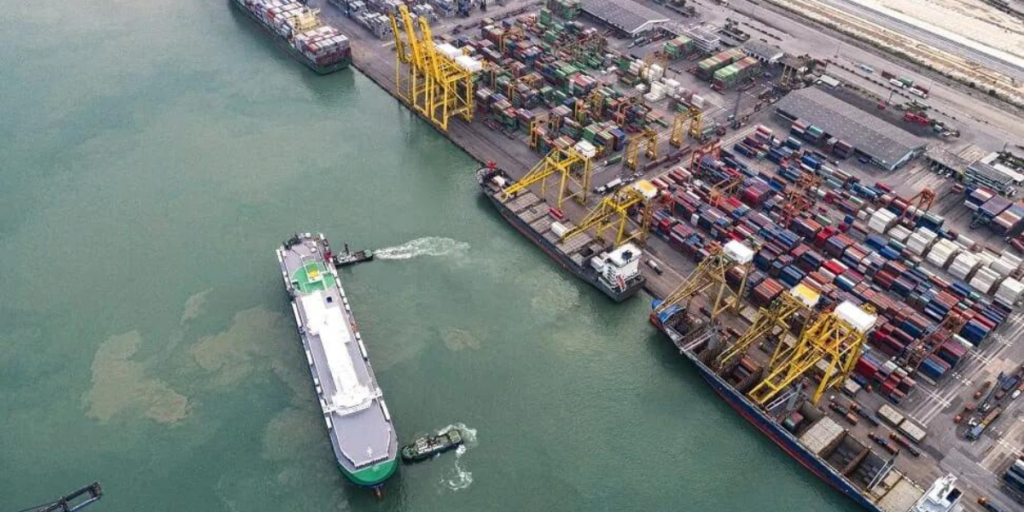In recent developments, India has taken a significant step to protect its domestic industries by imposing anti-dumping duties on three Chinese products – wheel loaders, gypsum tiles, and industrial laser machinery. This move comes after thorough investigations conducted by the Directorate General of Trade Remedies (DGTR), which found evidence of these products being exported to India at prices below their normal value. In this blog post, we will delve into the intricacies of anti-dumping measures, the specific cases leading to these duties, and the broader implications for the trade relationship between India and China.

Table of Contents
Understanding Anti-Dumping Measures:
Anti-dumping measures are essential tools employed by countries to counter the adverse effects of below-cost imports on their domestic industries. The primary objective is to ensure fair trade practices and create a level playing field for local manufacturers. Dumping occurs when foreign producers sell their goods in an export market at prices lower than their home market prices, often causing material injury to the domestic industry.
The Role of DGTR in Recommending Anti-Dumping Duties:
The Directorate General of Trade Remedies (DGTR) plays a crucial role as the investigative arm of the commerce ministry. It conducts thorough probes to determine whether a surge in below-cost imports has harmed the domestic industry. In the case of wheel loaders, gypsum tiles, and industrial laser machinery, the DGTR’s investigations led to the recommendation of imposing anti-dumping duties for a period of five years.
Specific Cases Leading to Anti-Dumping Duties:
- Gypsum Tiles:
- The CBIC issued notifications last month imposing duties on gypsum board/tiles with lamination on at least one side.
- The DGTR found evidence of these products being exported at prices below their normal value, causing material injury to the domestic industry.
- The duties will be levied for five years, providing a safeguard for local manufacturers.
- Industrial Laser Machinery:

- Duties have been imposed on industrial laser machines in fully assembled, Semi Knocked Down (SKD), or Completely Knocked Down (CKD) form.
- These machines, used for cutting, marking, or welding operations, were found to be imported at prices detrimental to the Indian market.
- The anti-dumping duties aim to protect the domestic industry from the impact of inexpensive imports.
- Wheel Loaders:
- Duties are imposed on wheel loaders imported in the form of Completely Built Unit (CBU) or SKD.
- The investigation revealed that these imports were causing material injury to the local manufacturers.
- The imposition of duties seeks to address the imbalance in the market and protect the interests of Indian industries.
Implications for the Trade Relationship:
India and China, both members of the World Trade Organisation (WTO), have engaged in a complex trade relationship. The recent imposition of anti-dumping duties by India underscores the challenges posed by inexpensive imports from China. During the fiscal year 2022-23, India faced a trade deficit of USD 83.2 billion with China, highlighting the need for measures to ensure fair trade practices.
The WTO Regime and these Measures:
Anti-dumping measures are initiated under the multilateral WTO regime. Countries conduct anti-dumping probes to determine the impact of below-cost imports on their domestic industries. Subsequently, duties are imposed as a countermeasure to address the adverse effects. These measures are crucial for fostering fair competition and preventing the undue advantage gained by foreign producers through unfair pricing practices.
A Five-Year Safeguard:

The anti-dumping duties imposed on the specified Chinese products will remain in effect for a period of five years unless revoked, superseded, or amended. This timeframe ensures a sustained protection for Indian industries, allowing them to recover and compete more effectively in the market. The longevity of these measures reflects the seriousness with which India views the potential threats posed by below-cost imports.
Expansion of Anti-Dumping Measures:
Beyond the recent cases of wheel loaders, gypsum tiles, and industrial laser machinery, India has previously imposed anti-dumping duties on toughened glass for home appliances and certain types of flax yarn from China. This reflects a comprehensive approach to safeguarding diverse sectors of the Indian economy from unfair trade practices.
Conclusion:
In conclusion, the imposition of anti-dumping duties by India on Chinese products is a strategic move to protect its domestic industries. The cases of wheel loaders, gypsum tiles, and industrial laser machinery highlight the meticulous investigations conducted by the DGTR to address the impact of below-cost imports.
The trade relationship between India and China, as members of the WTO, remains complex, play a crucial role in ensuring fair competition. The five-year safeguard period for these duties reflects India’s commitment to creating a level playing field for its industries and fostering sustainable economic growth. As the global trade landscape continues to evolve, such measures become essential for nations to protect their economic interests and promote fair and ethical trade practices.

